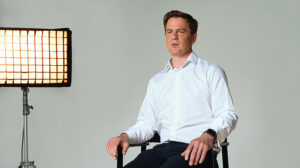Having initially taken up positions in the aftermath of the financial crisis, financials currently represent the biggest position in Buxton’s portfolio, at 31.5%. And, and almost six years after the initial investments, Buxton says he is seeing his long-term view pay off.
“I was a very lonely buyer of UK bank shares post-financial crisis,” he explained.
“It always going to be a multi-year process of rebuilding capital and taking losses, but would ultimately get back to something delivering low double-digit equity returns. It has been a long haul, but the journey is not over and there are more upsides to come.”
And the risks posed by the upcoming general election?
“Even if there was a knee-jerk reaction [from the new government] on day one following the election to break up the banks, we have seen from the carving out of TSB from Lloyds that it can take years to reach any sort of outcome.”
Buxton also has holdings in the life space, which he says is reaping the benefits of the changing pensions landscape.
“This results season has demonstrated that life insurers continue to be in a very good place,” he said.
“While some of their product lines such as personal annuities are falling away rapidly, the annuity market remains very strong. All the changes to pensions are designed to get people saving more for their future, and product providers are in the front line for that.”
So where else does Buxton see the potential for strong returns?
Despite UK wage growth grinding to a halt in January, Buxton is confident enough in discretionary consumer spending to have 21.98% of his portfolio dedicated to the sector.
“I think consumer spending will continue to be okay,” he said. “There is no boom out there, which is good, and it is driven by continuing employment levels, so we should start to see some wage growth.”
“Labour’s promise of a minimum wage increase could pose a problem, given that the retail and leisure sectors employ a lot of people on the minimum wage. But on the other hand, a minimum wage increase would put more money in people’s pockets that they are likely to spend. It is swings and roundabouts really.”








